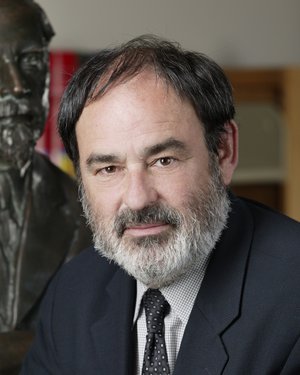Research Summary
The goal of this research program is to elucidate the causes and pathophysiology of obsessive-compulsive disorder (OCD). The program was initiated in the 1990’s to investigate the genetic etiology of OCD.
In the OCD Family Study (1996-2001), we evaluated over 800 individuals in 153 families. We found the occurrence of OCD to be six times greater in relatives of OCD cases than in relatives of the control group. Other anxiety disorders, especially agoraphobia and generalized anxiety disorder, also were more prevalent in case families. Segregation analysis provided evidence that genes of major effect are involved in OCD.
In the OCD Collaborative Genetics Study (2001-2007), we directed a genetics study of OCD in collaboration with five other academic centers in the United States. The collaboration diagnostically evaluated and collected DNA samples from over 200 affected sibling pairs, and completed the first large genome-wide genetic linkage scan of OCD. We found evidence of genetic linkage of OCD to regions on chromosomes 1, 3, 6, 7, and 15. We also found intrafamilial correlation of factor dimensions, especially hoarding behavior, in OCD families. In addition, we found significant linkage of compulsive hoarding behavior to a region on chromosome 14. We have been following up these findings with fine mapping of these regions and family-based association studies of functional candidate genes. This research has been funded by grants from the National Institutes of Health, the OCD Foundation, and the James E. Marshall OCD Foundation.
In the OCD Collaborative Genetics Association Study (2007 - 2014), we and our collaborators at five other academic centers are interviewing and collecting DNA samples from 2000 individuals with OCD and their parents. We will conduct a genome-wide association study to identify even smaller chromosomal regions associated with OCD.
Our current research studies are directed towards identifying both rare variants and de novo genetic variants in OCD, by whole and Exome sequencing.
Our research continues to be funded by the National Institute of Mental Health (NIMH), the James E. Marshall OCD Foundation, and the OC Foundation.
Selected Publications
Nestadt G, Lan T, Samuels J, Riddle M, Bienvenu OJ 3rd, Liang KY, Hoehn-Saric R, Cullen B, Grados M, Beaty TH, Shugart YY. Complex segregation analysis provides compelling evidence for a major gene underlying obsessive-compulsive disorder and for heterogeneity by sex. Am J Hum Genet. 2000 Dec;67(6):1611-6.
Nestadt G, Samuels J, Riddle M, Bienvenu OJ 3rd, Liang KY, LaBuda M, Walkup J, Grados M, Hoehn-Saric R. A family study of obsessive-compulsive disorder. Arch Gen Psychiatry. 2000 Apr;57(4):358-63.
Fallin MD, Lasseter VK, Wolyniec PS, McGrath JA, Nestadt G, Valle D, Liang KY, Pulver AE. Genomewide Linkage Scan for Schizophrenia Susceptibility Loci among Ashkenazi Jewish Families Shows Evidence of Linkage on Chromosome 10q22. Am J Hum Genet. 2003 Sep;73(3):601-11.
Samuels J, Eaton WW, Bienvenu OJ 3rd, Brown CH, Costa PT Jr, Nestadt G. Prevalence and correlates of personality disorders in a community sample. Br J Psychiatry. 2002 Jun;180:536-42.
Nestadt G, Samuels J, Riddle MA, Liang KY, Bienvenu OJ, Hoehn-Saric R, Grados M, Cullen B. The relationship between obsessive-compulsive disorder and anxiety and affective disorders: results from the Johns Hopkins OCD Family Study. Psychol Med. 2001 Apr;31(3):481-7.
Nestadt G, Wang Y, Grados MA, Riddle MA, Greenberg BD, Knowles JA, Fyer AJ, McCracken JT, Rauch SL, Murphy DL, Rasmussen SA, Cullen B, Piacentini J, Geller D, Pauls D, Bienvenu OJ, Chen Y, Liang KY, Goes FS, Maher B, Pulver AE, Shugart YY, Valle D, Samuels JF, Chang YC. Homeobox genes in obsessive-compulsive disorder. Am J Med Genet B Neuropsychiatr Genet. 2012 Jan;159B(1):53-60.
Mattheisen M, Samuels JF, Wang Y, Greenberg BD, Fyer AJ, McCracken JT, Geller DA, Murphy DL, Knowles JA, Grados MA, Riddle MA, Rasmussen SA, McLaughlin NC, Nurmi EL, Askland KD, Qin HD, Cullen BA, Piacentini J, Pauls DL, Bienvenu OJ, Stewart SE, Liang KY, Goes FS, Maher B, Pulver AE, Shugart YY, Valle D, Lange C, Nestadt G. Genome-wide association study in obsessive-compulsive disorder: results from the OCGAS. Mol Psychiatry. 2015 Mar;20(3):337-44
Qin H, Samuels JF, Wang Y, Zhu Y, Grados MA, Riddle MA, Greenberg BD, Knowles JA, Fyer AJ, McCracken JT, Murphy DL, Rasmussen SA, Cullen BA, Piacentini J, Geller D, Stewart SE, Pauls D, Bienvenu OJ, Goes FS, Maher B, Pulver AE, Valle D, Lange C, Mattheisen M, McLaughlin NC, Liang KY, Nurmi EL, Askland KD, Nestadt G, Shugart YY. Whole-genome association analysis of treatment response in obsessive-compulsive disorder. Mol Psychiatry. 2016 Feb;21(2):270-6.
Mattheisen M, Samuels JF, Wang Y, Greenberg BD, Fyer AJ, McCracken JT, Geller DA, Murphy DL, Knowles JA, Grados MA, Riddle MA, Rasmussen SA, McLaughlin NC, Nurmi EL, Askland KD, Qin HD, Cullen BA, Piacentini J, Pauls DL, Bienvenu OJ, Stewart SE, Liang KY, Goes FS, Maher B, Pulver AE, Shugart YY, Valle D, Lange C, Nestadt G. Genome-wide association study in obsessive-compulsive disorder: results from the OCGAS. Mol Psychiatry. 2015 Mar;20(3):337-44


Patient Ratings & Comments
The Patient Rating score is an average of all responses to physician related questions on the national CG-CAHPS Medical Practice patient experience survey through Press Ganey. Responses are measured on a scale of 1 to 5, with 5 being the best score. Comments are also gathered from our CG-CAHPS Medical Practice Survey through Press Ganey and displayed in their entirety. Patients are de-identified for confidentiality and patient privacy.